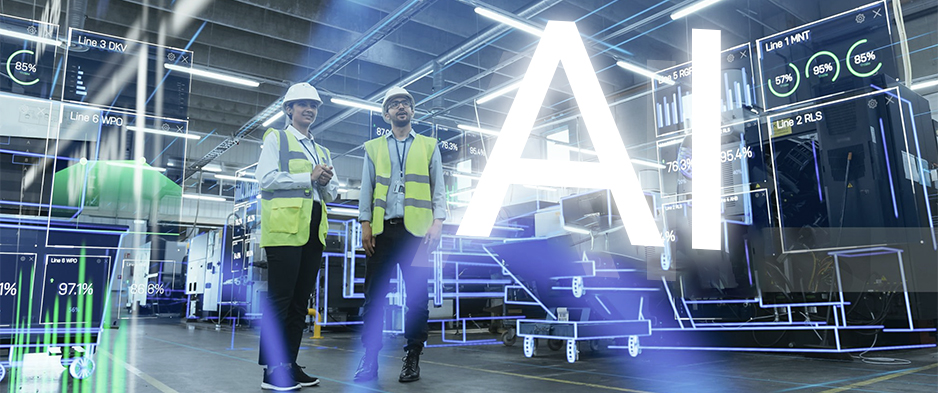AI agents in industry are among the main drivers of digital transformation, bringing greater speed, precision, and adaptability to production processes. They are systems capable of perceiving the environment, learning from experience, and making autonomous decisions. Thanks to these abilities, they can manage repetitive tasks, coordinate complex workflows, and minimize errors.
In this article we explore how AI agents work, the benefits they offer to companies, the organizational challenges related to their adoption, and the future scenarios that could reshape the industrial sector.
What Are AI Agents
An AI agent is autonomous software that collects data, processes it, and makes decisions to achieve specific objectives. In the industrial sector, it can handle planning, maintenance, quality control, or production flow management. The difference compared to traditional tools lies in their ability to interact with and adapt to the context, collaborate with other agents, and continuously improve performance. Thanks to this evolution, AI agents in industry are becoming a key element for building smarter and more resilient production environments.
The Main Advantages of AI Agents in Industry
1. Automation of Repetitive Tasks
One of the most evident benefits of AI agents is their ability to autonomously manage repetitive tasks that often occupy human resources in unproductive ways. Examples include constant machine monitoring, data entry, or process parameter checks. These activities, when entrusted to an intelligent system, become faster and more reliable. The result is greater efficiency, with operators free to focus on strategic and creative tasks.
2. Cost Reduction and Increased Efficiency
AI agents in industry make it possible to significantly reduce operating costs, thanks to fewer errors and greater execution speed. In addition, they optimize the use of resources, avoiding waste of energy or materials and improving production planning. All of this translates into a competitive advantage for companies, which can deliver quality products more quickly and at lower overall cost.
3. Decision Support
Another strength of AI agents is their ability to analyze large amounts of data and transform them into useful information. They can process everything in real time and propose optimized scenarios. Decisions thus become faster, based on updated data, with reduced risk of downtime or inefficiencies.
4. Accessibility and Ease of Use
AI agents are designed to be used even by people without advanced technical skills. Thanks to intuitive interfaces and natural language, it is possible to interact with these systems without the need to learn programming languages or complex analysis software. This accessibility helps create a more inclusive and collaborative work environment, while also reducing training times.
AI Agents in Industry: Applications and Challenges
AI agents in industry are applied in many areas, well beyond the simple automation of repetitive tasks. In design, for example, they can support technical teams by suggesting optimal configurations, simulating scenarios, and checking project consistency with required specifications. In engineering and production phases, they can generate configuration parameters, monitor correct line operation, and adapt production cycles according to real conditions.
A rapidly growing field is predictive maintenance: agents collect data from sensors, analyze machine status, and signal potential anomalies in advance, allowing targeted interventions before a breakdown occurs. Quality control also benefits greatly from autonomous intelligence, through real-time processing of images and sensor data to detect defects and reduce waste.
Despite these advantages, the introduction of AI agents in industry involves concrete challenges. One of the main issues is integration with existing systems, which requires investment in technological updates and interoperability standards. Another significant challenge is security: industrial data must be protected against possible cyberattacks or misuse. The adoption of intelligent agents therefore requires strengthening cybersecurity measures and constant attention to data protection.
The future of AI agents in industry will be increasingly oriented toward collaborative ecosystems, where different specialized agents work together to solve complex tasks. An increase in multifunctional capabilities is also expected, with systems able to process not only numerical or textual data, but also images, sounds, and sensor signals.

